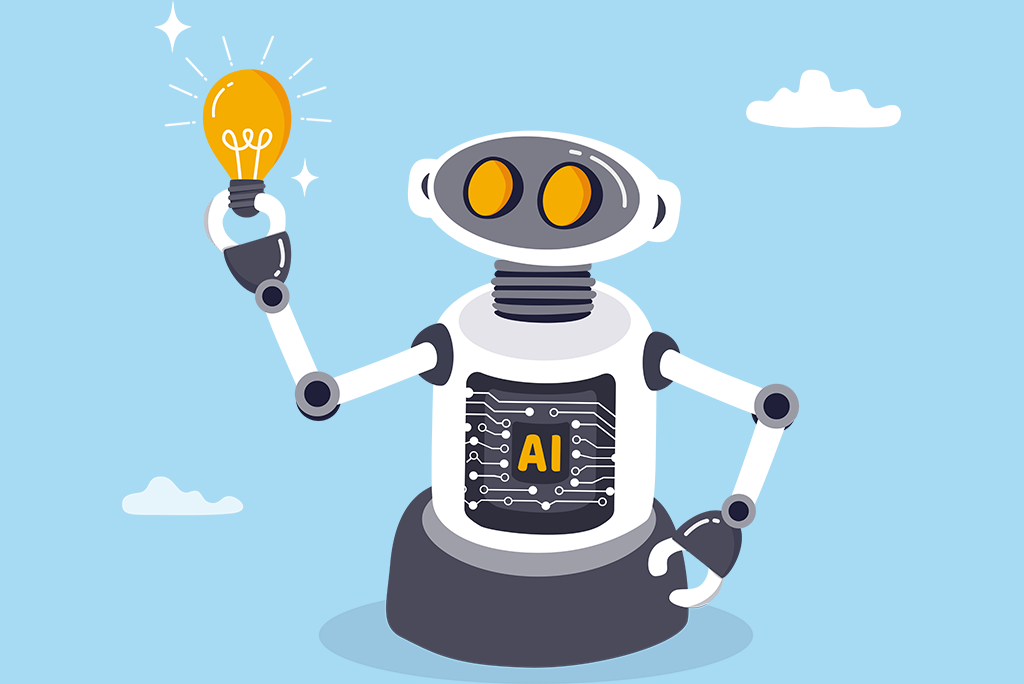
The topic of artificial intelligence (AI) has become one of the hottest headlines, especially because of the promise it holds for revolutionizing so many industries and applications. Among them, AI is being used to help reduce the time involved in automatable and administrative tasks in everything from manufacturing, healthcare, and banking to a range of other industries. In other specific applications, AI has been instrumental in thwarting cyber security threats, combatting retail fraud, recognizing driver patterns and predicting accidents through the design of autonomous vehicle navigation systems, and personalizing marketing and customer service experiences.
Overall, through the ability of machines to replicate and build upon the power of the human mind, AI is poised to transform business as we know it.
For that reason, the World Economic Forum has labeled technological advancements like AI “which merge the physical, digital, and biological worlds” as humanity’s “fourth industrial revolution,” following the advent of three preceding historic and equally transformative technological developments: steam/water power, electricity, and computing. In the words of Forbes contributor Bernard Marr, “I like to refer to [AI] as the Intelligence Revolution.”
AI: A Double-Edged Sword
Though the terms are sometimes confused or used interchangeably, AI is actually broken down into two different types – “artificial general intelligence” (or AGI) and “generative artificial intelligence” (or generative AI).
AGI refers to the ability of machines to understand, learn, and perform intellectual tasks as humans would based on the processing of demonstrated customer patterns. Examples of this include:
- personalized product recommendations provided by Amazon
- customized workouts and health goals suggested by apps (such as the MyFitnessPal app formerly owned by sports apparel and gear provider Under Armour) that base their recommendations on collected health data for physical activity, sleep, and diet
- smart assistants like Alexa and Siri that can control home technology, dial the telephone upon request, and more
Generative AI refers to a form of artificial intelligence that learns the patterns and structure of inputted data and responds by generating text, images, or other media with similar characteristics. An example includes the much-publicized ChatGPT, a chatbot introduced in November 2022 by OpenAI, that can produce output of a desired length, format, style, level of detail, and language on most any topic.
Experts confirm that AI can help businesses enhance their productivity by leaps and bounds. For example, research firm Gartner estimates that AI can save companies around the world over 6 billion employee-hours annually. On an economic level, a recent study by global management consulting firm McKinsey & Company predicts that the analytics enabled by AI could add US $13 trillion to our global GDP by 2030.
At the same time, however, AI also raises its share of issues and ethical concerns. Among them, generative AI can lend itself to the alteration of text, images, and video in the form of inaccurate, misleading, manipulative, and/or potentially dangerous “deep fake” or fraudulent content. It also raises questions about ownership rights of created content and its eligibility for copyright protection.
Helping Industry Navigate the Complex Field of AI
Recognizing both the unprecedented importance and complexity of artificial intelligence, IEEE offers several course programs in AI and machine learning designed to help navigate these exciting, complicated, and rapidly-evolving technologies.
- Machine Learning: Predictive Analysis for Business Decisions— Ideal for computer engineers, business executives, industry executives, industry leaders, business leaders, technical managers, data scientists, and data engineers, this five-course program provides an overview of the different types of machine learning that are fueling businesses today, how these forms of AI use software, algorithms, and models in their design, and how attendees can deploy scalable machine learning into their own processes to achieve their business goals.
- Artificial Intelligence and Ethics in Design— Ideal for data engineers, AI/ML engineers, design engineers, computer engineers, security engineers, electrical engineers, software engineers, UX designers, engineering managers, technical leaders, functional consultants, business users, research engineers, robotics engineers, machine learning engineers, and computer vision engineers, this five-course program covers such topics as law, compliance, and ethics in artificial intelligence, ethical challenges in data protection and safety, and responsible design in the algorithmic era.
- Artificial Intelligence and Ethics in Design: Responsible Innovation— This five-course program is designed to help learners understand the ethics specifications that must be met when designing AI systems for European (and other) markets. Topics include causes of bias, transparency and accountability for robots and AI systems, and legal and implementation issues of enterprise AI.
To discover more IEEE courses about artificial intelligence, browse the IEEE Learning Network catalog.
Resources:
Forbes Technology Council. (13 January 2022). 16 Industries and Functions That Will Benefit from AI In 2022 and Beyond. Forbes.
Fourth Industrial Revolution. World Economic Forum.
Marr, Bernard. (10 August 2020). What Is the Artificial Intelligence Revolution and Why Does It Matter To Your Business? Forbes.
Schroer, Alyssa. (19 May 2023). What Is Artificial Intelligence? Built In.
Mohan, Malethy. (22 March 2023). The Difference Between Generative AI and Traditional AI. LinkedIn.
Kanade, Vijay. What Is General Artificial Intelligence (AI)? Definition, Challenges, and Trends. Spiceworks.com.
Rajagopalan, Ramesh. 10 Examples of Artificial Intelligence in Business. Online Degrees.
Elliott, Timo. (9 March 2020). The Power of Artificial Intelligence Vs. the Power Of Human Intelligence. Forbes.
Dilmegani, Cem. (22 April 2023). Generative AI Ethics: Top 6 Concerns. AIMultiple.


No comments yet.